Oh, dear. I can't wait until they start building this, just one block from my office:
Developers went public Thursday with their plan for another race to the sky, this one in downtown Evanston: A proposed condominium tower that would crack the 500-foot barrier and become the tallest building in Chicago's suburbs.
Sure to incite heated debate in a suburb already in the throes of a high-rise building boom, the plan calls for tearing down a two-story retail building on a triangular block bounded by Church Street, Orrington and Sherman Avenues, and replacing it with a sliver-thin, 49-story condominium tower sheathed in glass and metal.
Pity, because the building they're tearing down is actually quite charming. It gets "better:"
The plan also envisions tearing down a 1940s mid-rise office building at the block's south end and replacing it with a low-rise restaurant building whose footprint would be half as large. The developers still have to purchase that property.
I'm torn. I think Evanston has to grow taller, but the old buildings in its downtown are part of its charm.
Sterling has reached $2. Last time I was in the UK, a Pound cost $1.52. Our economic policies have paid off, I see. (Only 642 days and 23 hours, at most, remain for those policies.)
While I'm working out here in Kyiv (actually Oak Brook, Ill.), Parker has to stay for hours on end in his crate. I feel bad about him being alone for so long (even though he gets walked around 1pm), but let's review why he's in a crate:

Tomorrow, though, the ParkerCam will be dark, because Parker gets to go to day care with his friends—and, more for my peace of mind, with the trainer who got him to understand the difference betwen me and the rest of his litter mates.
Also of note, a friend touring Thailand and environs called me this morning from Cambodia. That was really cool.
I'm still schlepping out to Kishinev (near Kyiv) every morning, so again all I have to offer is the dog walker's message from yesterday: "No business, but he's back to his usual self. #2: No. Treat." Simple, concise, nicely encapsulating my dog's afternoon.
Also, I've made a minor configuration change to the ParkerCam. A problem with the upload process had caused it to blank out occasionally; I've now fixed that. Enjoy.
I suppose this route would get me from Chicago to London. It just seems inconvenient. (Thanks to reader RB.)
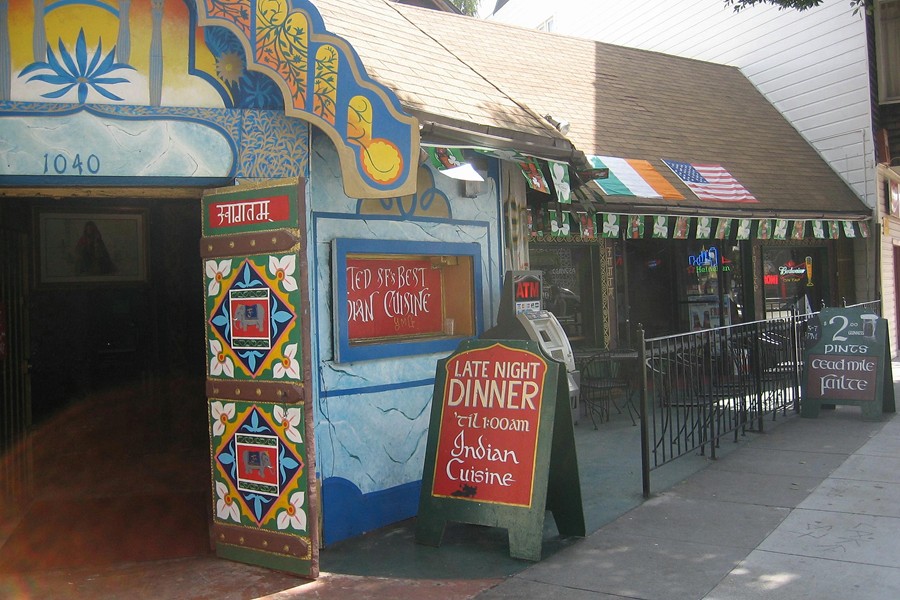 I meant to mention one other great thing about San Francisco: Kennedy's Irish Pub and Curry House, at 1040 Columbus Ave., right where the Powell-Mason cable car line ends. It had everything I could ever dream of in a place to park myself for hours: dozens of microbrews, a great bartender (Max McLean), outdoor seating (the back patio overlooks the cable car terminus; the front, busy Columbus Ave. in North Beach), and tasty dal makhani.
I meant to mention one other great thing about San Francisco: Kennedy's Irish Pub and Curry House, at 1040 Columbus Ave., right where the Powell-Mason cable car line ends. It had everything I could ever dream of in a place to park myself for hours: dozens of microbrews, a great bartender (Max McLean), outdoor seating (the back patio overlooks the cable car terminus; the front, busy Columbus Ave. in North Beach), and tasty dal makhani.
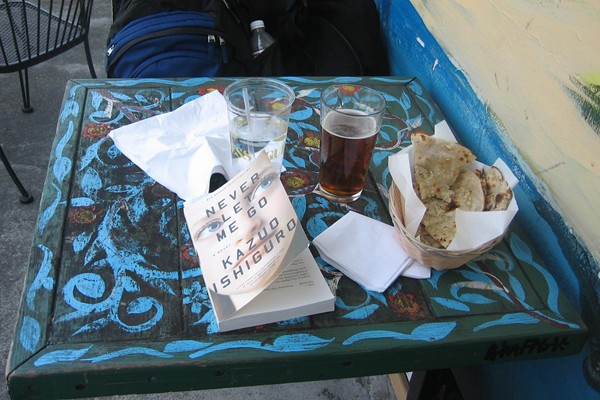 I went there Thursday and Friday afternoons, sat in the sun, drank some beer, ate some curry, and fought off some of the most aggressive pigeons I've ever encountered. (Max told me pigeons are a protected species in San Francisco. This is probably not true, but I still hesitated before swatting one off my book. Imagine the scene below with a pigeon perched on the cover, pecking at my naan: that's what I discovered upon returning from the washroom.)
I went there Thursday and Friday afternoons, sat in the sun, drank some beer, ate some curry, and fought off some of the most aggressive pigeons I've ever encountered. (Max told me pigeons are a protected species in San Francisco. This is probably not true, but I still hesitated before swatting one off my book. Imagine the scene below with a pigeon perched on the cover, pecking at my naan: that's what I discovered upon returning from the washroom.)
If they only had WiFi, and if Parker had been with me, I might never have come home.
I'm still scanning all my old photos, now up to slide #964 of 3,828 (not including the 176 rolls of negatives). In addition to the embarrassing photos of me as a gangly teenager, and embarrassing photos of my family (complete with 1980s hair and clothes), I've also found some of general interest, like these two of New York in July 1984:
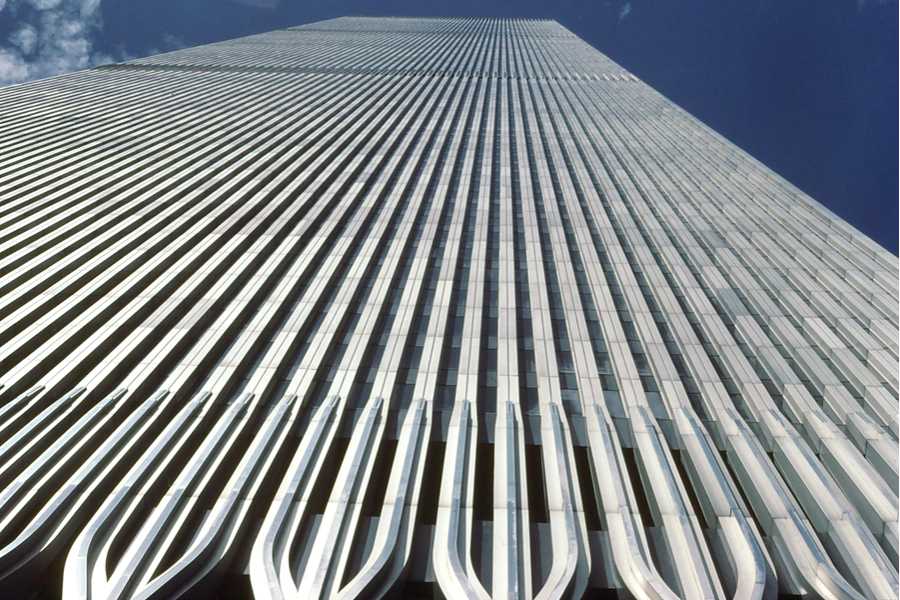

In the bottom picture you can just make out that the Statue of Liberty is covered in a scaffold. This was during the centennial renovation project that ended with the statue's re-opening to the public on 4 July 1986. Also, you can see the World Financial Center under construction just to the right (West) of the World Trade Center.
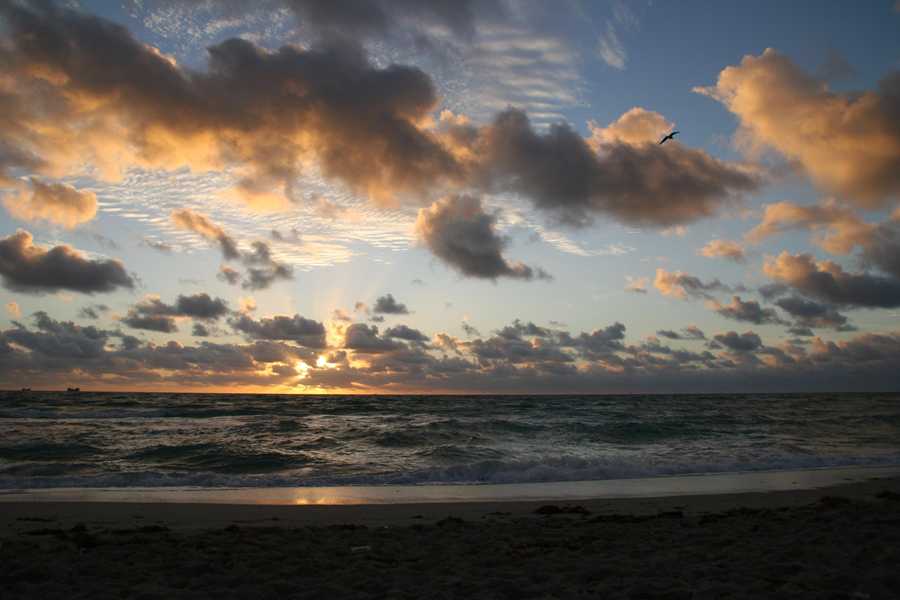
That's the 10th St. Beach in Miami Beach, Fla. As I write this the sun is coming up over Lake Michigan. It's just 20°C (36°F) colder there, is all.
Today's Chicago Tribune asks, "Who needs Florida?":
Balmier days are forecast to continue in Illinois over the next few days, a result of warmer air masses flowing in from the west and southwest and the effects of an El Nino year.
While no records are being broken—back in 1876 it was 65°F (18°C) on Jan. 2—temperatures in coming days are expected to remain mercifully above the historic average high of about 30°F (-1°C).
I find this funny because I'm sitting in shorts and a polo shirt by a pool surrounded by palm trees, a light 24°C (75°F) breeze cooling my sandal-clad feet, looking at Chicago's weather report, which tells me it's 1°C (33°F) back home—with a wind chill of -4°C (25°F).
I really can't answer the question "who needs Florida," but I can say the weather's a lot better here than in Chicago.
I'm back in Chicago, but I'm looking forward to my next visit to San Francisco. Here's one more from our walk Saturday:
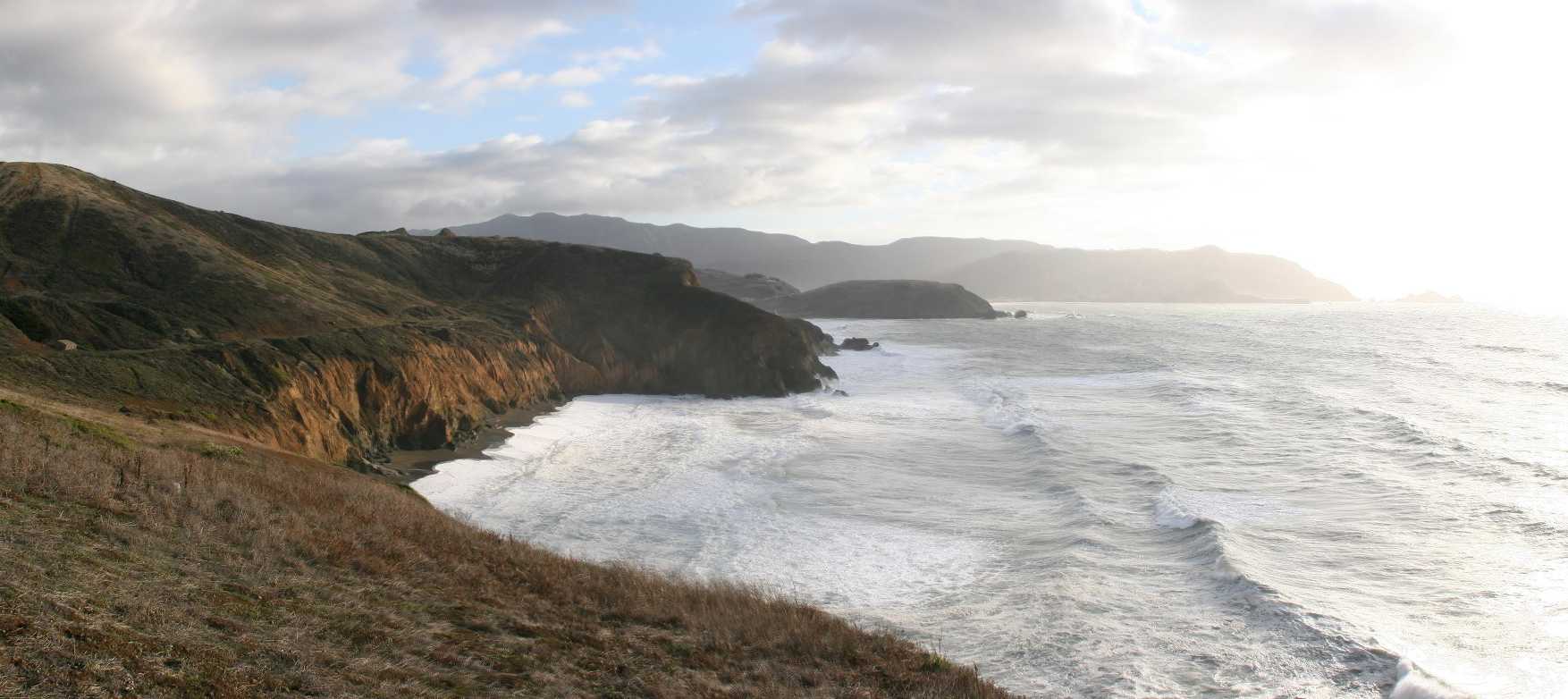
(Click on the photo to see it full-size.)